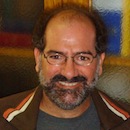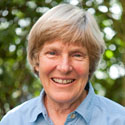Academic Editors
The following people constitute the Editorial Board of Academic Editors for PeerJ. These active academics are the Editors who seek peer reviewers, evaluate their responses, and make editorial decisions on each submission to the journal. Learn more about becoming an Editor.

Maria Gavrilescu
Maria Gavrilescu is Professor at the Department of Environmental Engineering and Management, Faculty of Chemical Engineering and Environmental Protection - Gheorghe Asachi Technical University of Iasi, Romania. Her research interest includes: chemical and biological process engineering, biotechnology/ environmental biotechnology, environmental risk assessment and management, ecological risks, industrial safety, integrated pollution prevention and control, sustainable industrial production, eco-design, eco-technologies, cleaner production, environmental evaluations.
She is author or co-author of •36 books and chapters (Wiley, Springer, Elsevier, Signpost)•9 student books •148 papers published in ISI ranked journals and ISI Proceedings (6)•91 papers published in peer-reviewed journals•37 papers in peer-reviewed Proceedings•49 conferences and keynotes •176 presentations at conferences •44 research reports •12 patents (9 in Derwent Innovations Index).
Prof. Gavrilescu is the Editor-in-Chief of Environmental Engineering and Management Journal (EEMJ) edited under the aegis of “Gheorghe Asachi” Technical University of Iasi Romania, and included in relevant international databases. The impact factor (Thomson Reuters) ISI in 2016 is 1.098, according to Journal Citation Reports.
The scientific visibility is illustrated by over 2800 citations (WOS h-index 25, Scopus h-index 25).

Stefan Steiniger
Stefan Steiniger is a Professor at the School of Construction and Transport Engineering at Pontificia Universidad Catolica de Valparaiso, Chile, and in charge of the spatial data infrastructure/observatory of the Chilean Centre for Urban Sustainable Development (CEDEUS). With a background in automated geo-visualization, spatial data analysis, geodesy and geo-information technologies in general he has a wide interest in developing free & open source GIS tools and their applications in diverse fields including cartography, wildlife ecology, landscape ecology, urban planning, and transportation. His latest research focuses on (i) developing web platforms for urban accessibility analysis - such as CiudadCaminable.com and Walkability.App, (ii) processes and tools for the calculation (Python and R), visualisation (Dashboards) and management of sustainable city indicators and their data, as well as (iii) the development of scenario modelling tools for urban planning.

Gregory M Verutes
Gregg Verutes is a biogeographer currently supporting Blue Forest Conservation's data management, visualization, and reporting systems. He specializes in blending the fields of conservation and technology to empower planners, managers, and analysts who are passionate about protecting the multitude of benefits flowing from ecosystems to people. He has previously worked for the National Geographic Society, Audubon Society, World Wildlife Fund, and Stanford University. Gregg received his Ph.D. in Marine Science & Technology from the University of Santiago de Compostela, a M.Sc. in Geographic Information Science from San Diego State University, and B.Sc. in Policy Analysis & Management from Cornell University.
Claudio Andaloro
Dr. Claudio Andaloro is MD at Department of Surgery, Otolaryngology Unit, Latisana-Palmanova Hospital, Azienda Sanitaria Universitaria Friuli Centrale (ASUFC), Udine, Italy. His research interests focus on rhinology, laryngology, pediatric otolaryngology and sleep medicine.

Jonathan D Tonkin
My research is focused around what promotes and maintains biodiversity at a range of spatial scales. Much of my work focuses on stream ecosystems, but my interests are question focused, not system specific. While my central interest lies in disentangling the mechanisms that structure metacommunities, I also tackle questions ranging from local to global, and from community ecology through to macroecology. I focus on a variety of basic ecological concepts and processes, including linkages between disturbance, productivity and diversity, biodiversity loss, ecosystem function, dispersal, and community assembly. I also aim to tackle applied ecological issues such as global change, land-use change, river regulation, and restoration, with the goal of applying ecological theory to effectively manage threatened ecosystems. My current research ties these issues together into the following three main themes: 1) Metacommunity ecology; 2) Global change ecology and macroecology; and 3) Restoration ecology. In light of these three themes, I am particularly focusing on the unique hierarchical and dendritic structure of river networks, and how this structure influences the biodiversity patterns of river communities.

Giuseppe Marcolin
Giuseppe Marcolin is an Associate Professor in Sports Science at the Department of Biomedical Sciences of the University of Padova, Italy. He obtained a BSc in Physical Education (ISEF) at the University of Bologna. Then, he obtained his MSc in Human Movement Sciences and his PhD in Neuroscience at the University of Padova. His scientific activity is devoted to biomechanical and electromyographical analysis applied to functional assessment in sports training and rehabilitation. He mainly focuses on understanding the influence static and dynamic balance control has on sports performance among athletes and fall risk among older adults. He is a member of the Italian Society of Motor and Sport Sciences (SISMES). He collaborated with the International Sports Engineering Association (ISEA) as a member of the organizing committee of the ISEA Winter School editions.

Luis M Chiappe
Vice President for Research and Collections, and Director of the Dinosaur Institute, at the Natural History Museum of Los Angeles County. Adjunct Professor of the University of Southern California. Research Fellow of the Chinese Academy of Geological Sciences. J. S. Guggenheim Fellow and recipient of the Friedrich Wilhelm Bessel Research Award of the Humboldt Foundation.

Rommel T J Ramos
The Rommel Ramos Professor of Bioinformatics of Federal University of Para (Brazil) affiliated member of Brazilian Science Academy and CNPq Researcher (level 1-D). Since 2008 works with genome assembly and RNA-Seq analysis, he is the leader of the bioinformatic development group of the Biologic Engineering Laboratory in Park of Science and Technology (Pará/Brazil).

Torsten Thomas
Torsten holds a MSc (1996) from the University of Bonn (Germany) and a PhD (2001) from the University of New South Wales (UNSW). He has been a Fellow of the American-Australian Association (2005), an ARC PostDoctoral Fellowship (2006-2009), a Senior Lecturer (2009-2012), an Associate Professor (2013-) and an ARC Future Fellow (2015-) at the School of Biotechnology & Biomolecular Sciences (BABS) and the Centre of Marine Bio-Innovation (CMB) at UNSW. In 2016 he became the Director of the CMB and was appointed Full Professor in the School of Biological, Earth and Environmental Sciences (BEES) at UNSW in 2017. He has published over 120 peer-reviewed papers in the broad area of environmental microbiology and microbial ecology. His current research interest cover the interactions (symbiosis/disease) between bacteria and marine invertebrates and macroalgae, the evolution of microbial populations and communities and the impact of biochar on microbial process in soil.

P Dee Boersma
Wadsworth Endowed Chair in Conservation Science and Prof. of Biology, University of Washington, Director for Center for Ecosystem Sentinels and the Wildlife Conservation Society Magellanic Penguin Project, and Adjunct Curator of Ornithology, Burke Museum. Recipient of 2024 Godman-Salvin Prize, 2012 Ocean Conservation Award Aquarium of the Pacific, 2010 Nature Conservancy of Washington Environmental Hero, 2009 Annual Heinz Award for the Environment. Former President of the Society of Conservation Biology. For selected publications go to ecosystemsentinels.org.

Anthony C Faber
I currently serve as the co-leader of the developmental therapeutics program at VCU Massey Cancer Center, where I am also Associate Professor in the VCU Philips Institute. My laboratory focuses on finding new therapies in pediatric cancers.

Sau Pinn Woo
Dr Woo received his PhD in Natural History Sciences from Hokkaido University. His interest of study includes systematics, taxonomy, and diversity study of marine invertebrates, focusing on the group Echinoderms. Since 2009, he has been actively uncovering the marine biodiversity and systematics of sea cucumbers across the region.
He is currently serving as a senior lecturer in the Centre for Marine and Coastal Studies (CEMACS), Universiti Sains Malaysia where he is also actively leading several marine biodiversity research in the Southeast Asian region that includes several taxa of marine invertebrate. At the global front, he is a serving in several UN Decade of Ocean Science Program ECOP co-chairs and also an active contributor to the IOC Sub-Commission for the Western Pacific (WESTPAC) programmes. At the same time, he is passionate in creating awareness and education of marine sciences to the society through various educational programmes done in CEMACS with the concept of experiential learning for marine sciences

